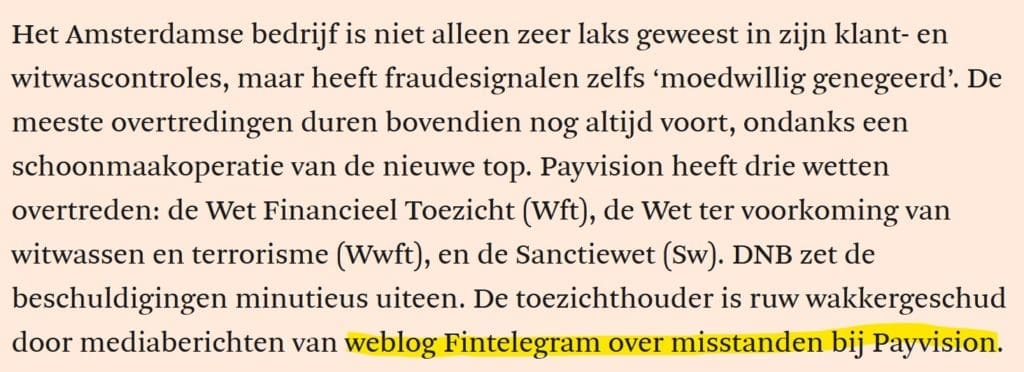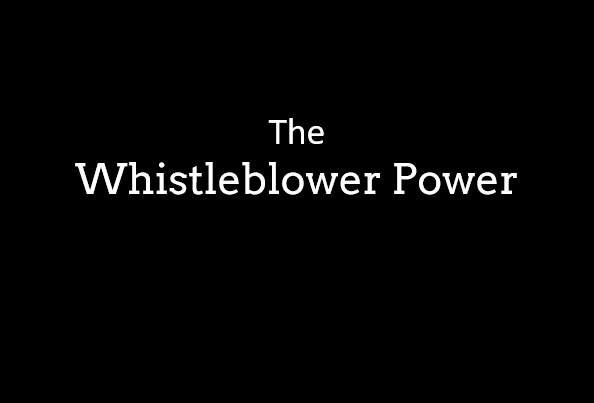In April 2020, the Bank of Lithuania, as the competent regulator, revoked the license of Eyal Nachum‘s Israeli e-money institution Bruc Bond (formerly Moneta International). The revocation was preceded by numerous FinTelegram reports exposing the payment processor’s scam-facilitating activities. In October 2020, the Dutch regulator DNB submitted a Payvision report, in which the allegations raised by FinTelegram were apparently confirmed, as the Dutch financial magazine FD notes.
The Wirecard Battle
The Wirecard collapse would probably not have happened without the Financial Times reporting. Only publishing the Wirecard wrongdoings by the Financial Times ensured that the German BaFin and the public prosecutor’s office could no longer look the other way. They did so over many years. The Financial Times journalists, however, were spied on by Wirecard detectives before the collapse and prosecuted by German law enforcement.
Whistleblowers & The Awakening Calls
Since FinTelegram was founded in 2018, we have pointed out dozens of reports of regulatory or criminal misconduct by financial service providers, payment processors, or brokers, triggering numerous regulatory investigations. Quite a few settlements of CySEC with investment firms are also due to information provided by FinTelegram. We have been able to do so due to information we received from whistleblowers. They are the most important element in fighting cybercrime.
For this, FinTelegram has also received dozens of threats and numerous lawsuits. For example, Eyal Nachum and Bruc Bond in Israel sued us for defamation before the Bank of Lithuania confirmed the allegations made by FinTelegram. Payvision and Rudolf Booker have threatened FinTelegram and brought defamation suits.

In its latest Payvision report, the Dutch FD said that the FinTelegram articles had rudely awakened the regulator DNB. Once awakened, the Dutch regulator evidently found that the FinTelegram reports were correct, and Payvision, Rudolf Booker, and the other directors have facilitated cybercrime organizations with their payment services. Evidently, DNB even confirmed the names of the fraudsters and their legal entities.
Lessons Learnt
What can be learned from this? First, we found that regulators and law enforcement are overwhelmed with the cyberfinance environment and often unable to understand fintechs’ business models. Looking the other way is then the easier way.
Another lesson we have learned over the last few years is that whistleblowers are the most crucial weapon in the fight against cybercrime. Only through inside information is it often possible to understand how illegal payment flows are constructed.
And ultimately, we have learned that exposing illicit activities is the most efficient way to force authorities to act.

At what cost ?
You are acting as the legal system, as the judge.
You take sides with the first who provide you with information
No matter if the information is valid